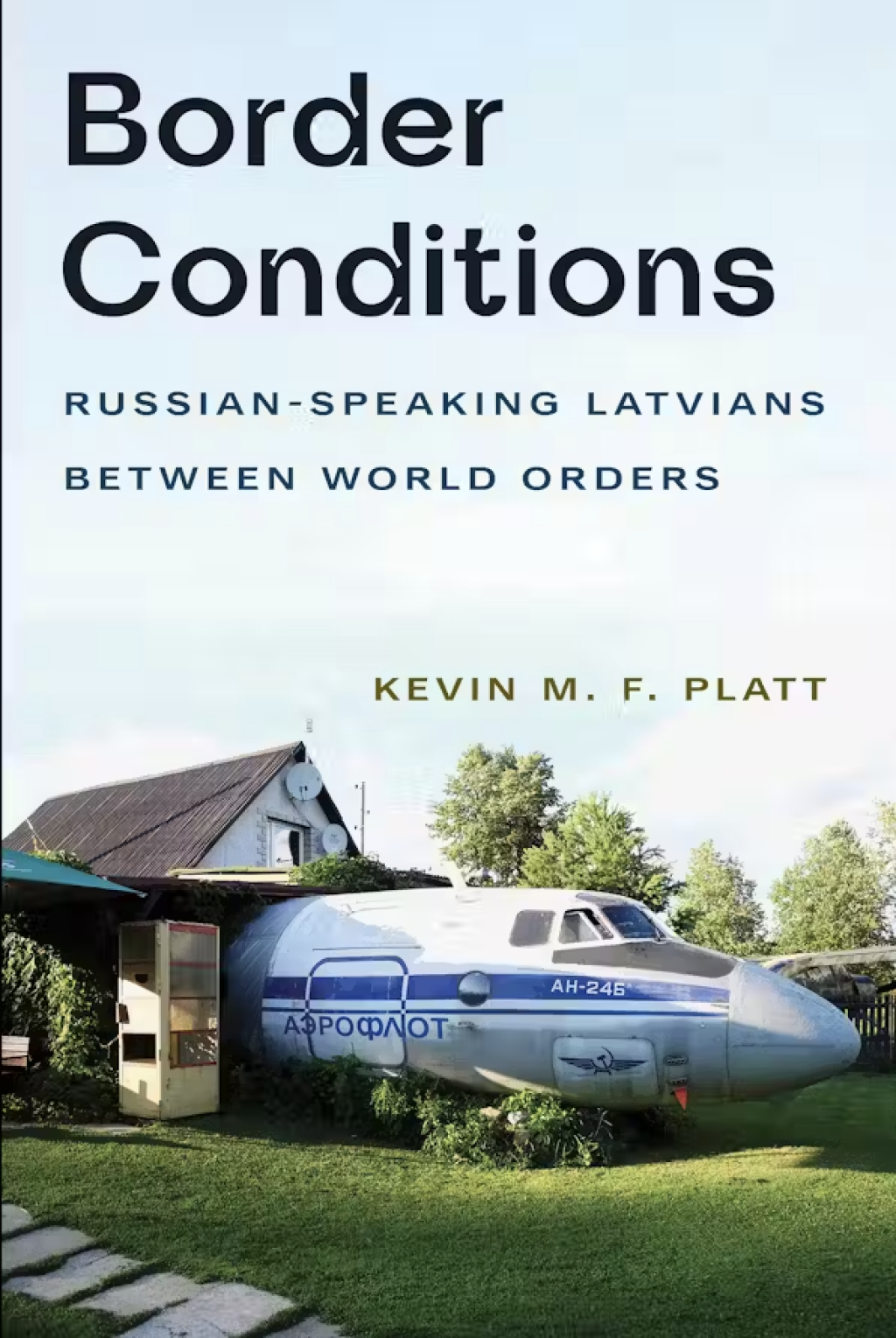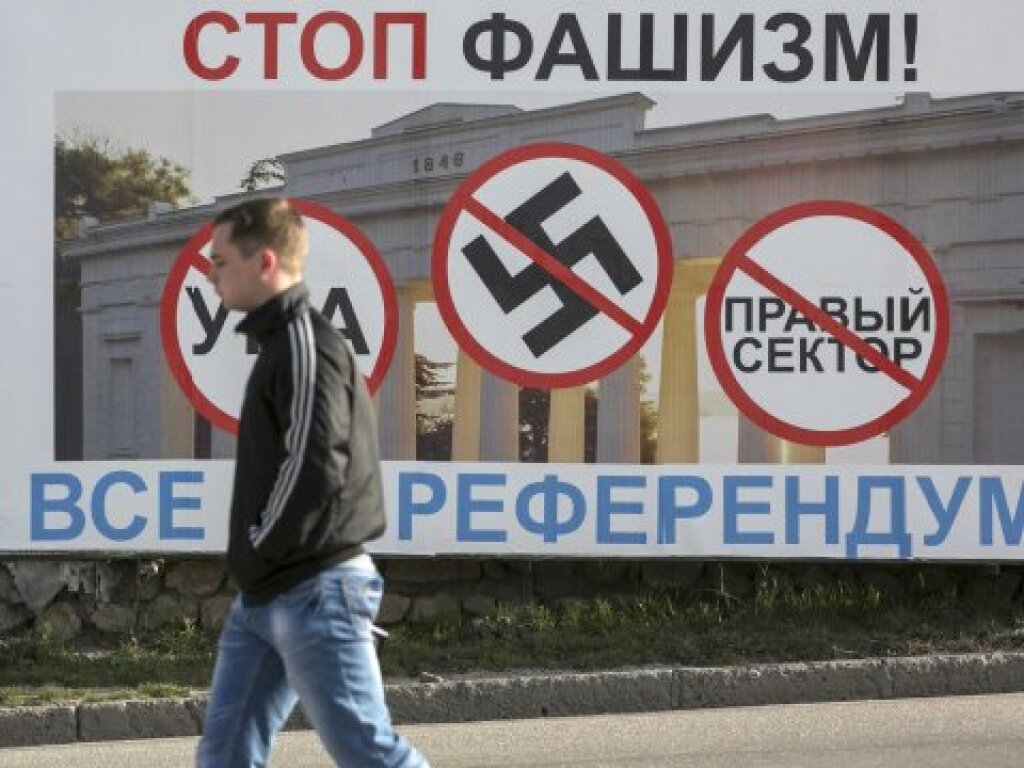Kevin M. F. Platt is Professor of Russian and East European Studies and Chair of the Doctoral Program in Comparative Literature and Literary Theory at the University of Pennsylvania. He is author or editor of a number of books, including Terror and Greatness: Ivan and Peter as Russian Myths (Cornell, 2011), Global Russian Cultures (Wisconsin, 2019), and, most recently, Border Conditions: Russian-Speaking Latvians Between World Orders (Cornell/NIUP, 2024). His current project is entitled Cultural Arbitrage in the Age of Three Worlds.
This post is an excerpt from Border Conditions: Russian-Speaking Latvians between World Orders by Kevin M.F. Platt, published by Cornell University Press. Copyright (c) 2024 by Cornell University. Used by permission of the publisher.
This post is Part III in a three-part series; Part I may be found here, and Part II here.
The Orbita group was founded in 1999 by five Russian-language poets and multimedia artists from Riga: Semyon Khanin, Punte, Vladimir Svetlov, Timofejev, and Zhorzh Uallik (the last of whom, within a few years, became a more or less inactive member). Over the twenty-plus years of its existence, the activities of the group have progressively expanded from a foundation primarily in poetry to include video poetry, multimedia art installations, an annual almanac, a press—which publishes Orbita’s own literary and critical writing and photography, as well as work by others—the organization of festivals and recurring event series, participation in public art initiatives such as the Cēsis Art Festival and the Riga Biennale, and many other undertakings. The group’s performance activities, which are treated in detail below, involve collaboration with a network of other Latvian, Russian, and Russophone poets, artists, musicians, and institutions, including not only Nastavshev and the Theater of Russian Drama but also the Latvian National Opera, the Latvian National Museum of Art, and Latvia’s most successful rock group, Prāta Vētra (Brain Storm). The red thread that runs through all of this activity is translation: Orbita poetry almost never appears in Latvia in any form, published or performed, without a Latvian translation; outside Latvia, the group’s work has been translated into multiple other languages and the members of Orbita are themselves active as translators. Orbita’s reputation and recognition have grown over the years: it has received numerous awards within Latvia for writing, book design, and installation art; its poetry has been published in journals and as separate books in multiple European languages and in English in both the US and the UK; and its members’ books have been published by the prestigious New Literary Observer Publishing House in the Russian Federation, where the group has also received accolades including the Sergey Kuryokhin Contemporary Art Award, being shortlisted for Russia’s most prestigious nonstate literary award, the Andrey Bely Prize, and others. In sum, this is local Russophone Latvian culture gone global.
Orbita’s activities are a concerted effort to deploy Russian language culture on the Latvian scene without reasserting the language of the occupier or reconstructing the official cultural geography of the Soviet era. Toward the end of the first decade of the new century, when I first met the members of the group and asked about their vision for Russophone culture in Latvia, they replied in a deadpan—even making a show of the extent to which they considered the question to be banal—that things Russian should be a normalized and unremarkable component of an independent, multilinguistic Latvian society. In short, Orbita was from the start a social-political project. Yet the poets don’t necessarily want to talk about it, at least not in direct terms. This project could not be called utopian, given that the group viewed a culturally and linguistically hybrid future as an actual possibility. Yet it must also be said that this vision was and is not widely shared. It is deeply foreign both to those who seek a “Latvia for Latvians” and to Russians who continue to mourn the past dominance of Russian language and culture— in other words, to all those who view language, culture, and territory in national or imperial terms. And contrary to the group’s hopes at its founding and its insistence during our conversation over a decade ago, Russian language and culture have in more recent years been brought more and more to heel and down to ground in the Russian Federation, regional geopolitics has been increasingly polarized across the Europe-Russia border, reaching a fever pitch of conflict in 2022, and Latvian society has remained fractured along ethnic lines. Nevertheless, Orbita has continued to create Russian-language poetry as Latvian poetry in Riga, to dispatch this Latvian poetry as Russian poetry into the Russian Federation, and to project that Russian Latvian poetry into other languages and around the world. Orbita’s pragmatic yet improbable, localized yet deterritorialized and global project calls for a new understanding of poetry’s location in geography. […]
Radio has been something of an idée fixe for Orbita, in part, one suspects, in a reflection of Timofejev’s background in music—he worked at one time as a DJ. A 2014 project involved a pirate FM station the group set up in the center of Riga, dubbed Marx FM, which broadcast poetry in Latvian, Russian, and English without pause until it was pinpointed by the authorities and shut down, resulting in a fine for the group.
Yet Orbita’s most salient use of radio was in a performance format the group employed from about 2010 to 2019, called the FM Slow Show, which fully realized Orbita’s mode of performative translation. In general, the venue where you might encounter the FM Slow Show could be a theater auditorium, a nightclub, or a summer music and culture festival. The stage is set with a long table, holding thirty or forty transistor radios of various makes, eras, colors, and sizes, as well as a keyboard synthesizer and a standing microphone. At the back of the stage the Orbita logo is projected on a screen. The four poets, accompanied by the keyboardist, take the stage and unhurriedly turn on the radios, one by one, which releases a tissue of sound composed of white noise, snatches of music, weather, and news reports in Latvian or Russian, as the poets continue to adjust the devices. The musician begins to play sequences of slow chords. Then one of the poets approaches the standing microphone. The ambient noise grows subtly less audible and the music changes character as the poet reads, slowly and deliberately, a poetic text in Russian, as translations into Latvian and perhaps also English, presented a few lines at a time, take the place of the logo on the screen. Following the recitation, the poet returns to the table. The music shifts as radio transmissions are heard more audibly. Then another poet approaches the mike to deliver a different poem. The set might last twenty or thirty minutes and include eight or twelve poems. At the conclusion, the poets turn off the radios, to the applause of the audience (rather restrained, if this is in Latvia, where crowds seldom get too riled up).
I have seen this show performed multiple times in various venues and formats in Latvia and the United States. At times the musical accompaniment has been prerecorded. At times there have been more or fewer radios involved. Always, the performance’s most overt feature is its interweaving of distinct sound layers, media, and languages. The understated musical accompaniment provides an atmospheric armature, as does a shared amplification system that brings all acoustical material into equivalence—rendering radio signal and poetic utterance comparable parts of a single work in a mediatic metaphor. This metaphor operates via the juxtaposition of diverse languages but also diverse geographic scales—local utterances, in whatever languages show up on the radio dial in the vicinity, are thrown into a creative fusion with poetry in Russian and its translated versions. Radio transmission and linguistic translation, visual projection and aural reproduction, are all presented as integral components of a performance that is captivating no matter what language you speak—and that often enough holds spectators who speak little Russian in rapt appreciation. Note the curious inversion in the Slow Show of the scalar qualities of radio as a medium: the broadcast signal, which might more typically be conceived as carrying communication across great distances, here figures as the carrier of local signals, a representative of a specific time and place. The spoken lyric word, on the other hand, produced in the here and now, resounds as though it were being translated across space and linguistic barriers on the FM radio waves—and in this regard, one must note that the Russian and Latvian words for “broadcast,” transliatsiia and translācija, are etymologically linked in obvious fashion with the English word “translation.”



